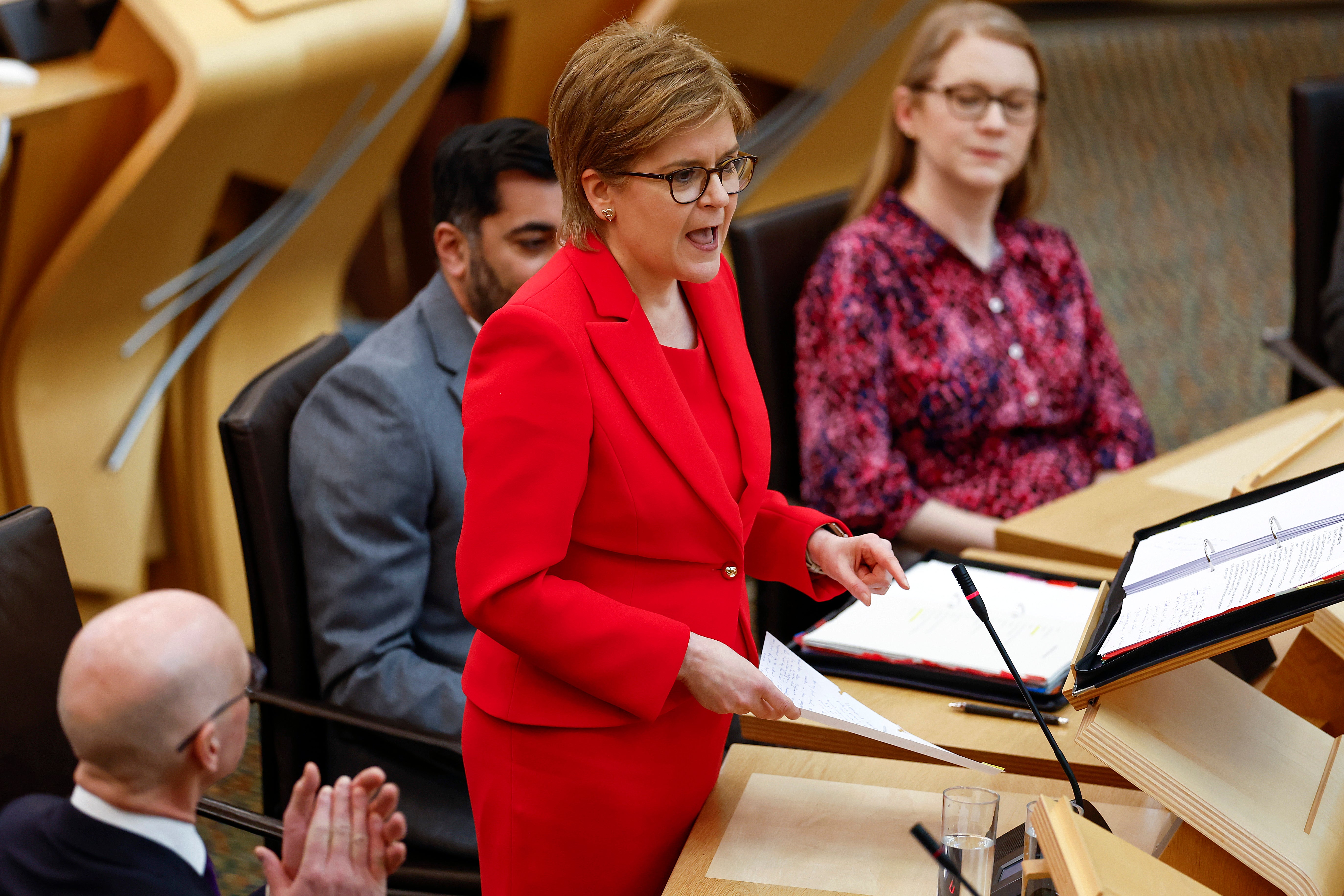The suddenness of the SNP’s disarray has been unnerving
Yet it is possible that the party, and the cause of independence, will emerge stronger from Nicola Sturgeon’s departure, writes John Rentoul


When the facts change, I change my mind. I was wrong about Nicola Sturgeon, and I was wrong to think that Scottish independence was an imminent possibility. I thought she was a brilliant politician, and I still think she is one of the best communicators in modern Britain.
But it is now clear that she misjudged her route to a place in history. Some of her admirers claim that the sudden disarray of the Scottish National Party since she announced her departure is proof of her greatness – only she could hold the show together.
In fact, her departure is proof of her weakness. The disarray was already happening behind the scenes. She did well tactically to hide it, but she announced her resignation because she had failed. Things have all gone wrong for the SNP not because she has left; she left because it had all gone wrong.
At this point, the worst mistake that those of us who want to keep the country together could make would be any hint of triumphalism. So I acknowledge at the start that Sturgeon’s departure is likely to strengthen the SNP, after a period of turbulence, and strengthen the separatist cause.
How could it not strengthen the SNP for it to adopt the strategy that we unionists have been urging on it all along? We said that it was a foolish idea to try for a dash to a second referendum in the hope that the thrill of the campaign and the divisions of their opponents would carry the pro-independence vote to 50.1 per cent. We knew that many in the SNP privately agreed with us.
Now they say so publicly. As Kenny Farquharson of The Times has pointed out, Humza Yousaf, the favourite in the SNP leadership contest, said he thought independence had to be the “sustained, settled will” of the Scottish people before another referendum could be held. Kate Forbes, his rival, agreed, using the phrase “sustained majority”. She said: “I don’t just want 51 per cent. I want to ensure as many Scots as possible are persuaded.” Only Ash Regan, running a distant third, echoes the Sturgeon message that any majority will do.
Yousaf and Forbes know that any attempt to rush to independence against the wishes of nearly half the population would be even more difficult than trying to make Brexit work on a marginal vote of the UK. It would not only be foolish in principle, but it would be impossible in practice. Because now we are sure, thanks to Sturgeon’s vexatious case in the Supreme Court, that the law says what everyone knew it said all along, it is clear that the UK parliament will agree to another referendum only if independence is the “sustained, settled will” of Scottish residents. We don’t need to define the settled will yet, as it is obvious that Scotland is far from it, but Farquharson points out that Sturgeon once talked in private about 60 per cent sustained in opinion polls for a year.
That was before she took what we can now see was the wrong turn, after the EU referendum. If she had stuck to that 60 per cent policy – while of course also claiming that Brexit was a material change justifying a second referendum – the independence movement might be in a better position now. If the movement had spent the last seven years trying to persuade soft unionists instead of howling that “Scotland” was trapped in a Tory imperialist union against “our will”, Sturgeon might be about to hand over a party and a cause in better shape.
Still, the problem for those of us who want to keep the country together (I don’t like the word “unionists”) is that her departure means that the party and the cause could now be in better shape – once they have got over the shock of tearing each other apart in televised hustings (no wonder party apparatchiks wanted to conduct the election campaign behind closed doors).
One hustings this week was so bad that when the Labour Party edited the video for an anti-SNP broadcast, it actually made the exchanges seem less hostile than they were. But Forbes’s attack on Yousaf’s record at transport, justice and health was significant not just for its freewheeling viciousness, but for the sudden glasnost about the SNP’s dismal record in government.
If the SNP finally comes to realise that it needs to persuade a large, sustained majority of Scottish voters, including by actually delivering in government, then those of us who want to keep the country together may really find ourselves on the defensive.
Join our commenting forum
Join thought-provoking conversations, follow other Independent readers and see their replies
Comments
Bookmark popover
Removed from bookmarks